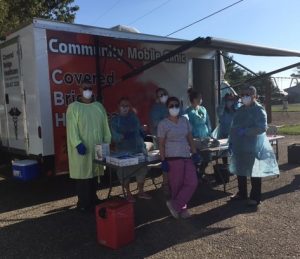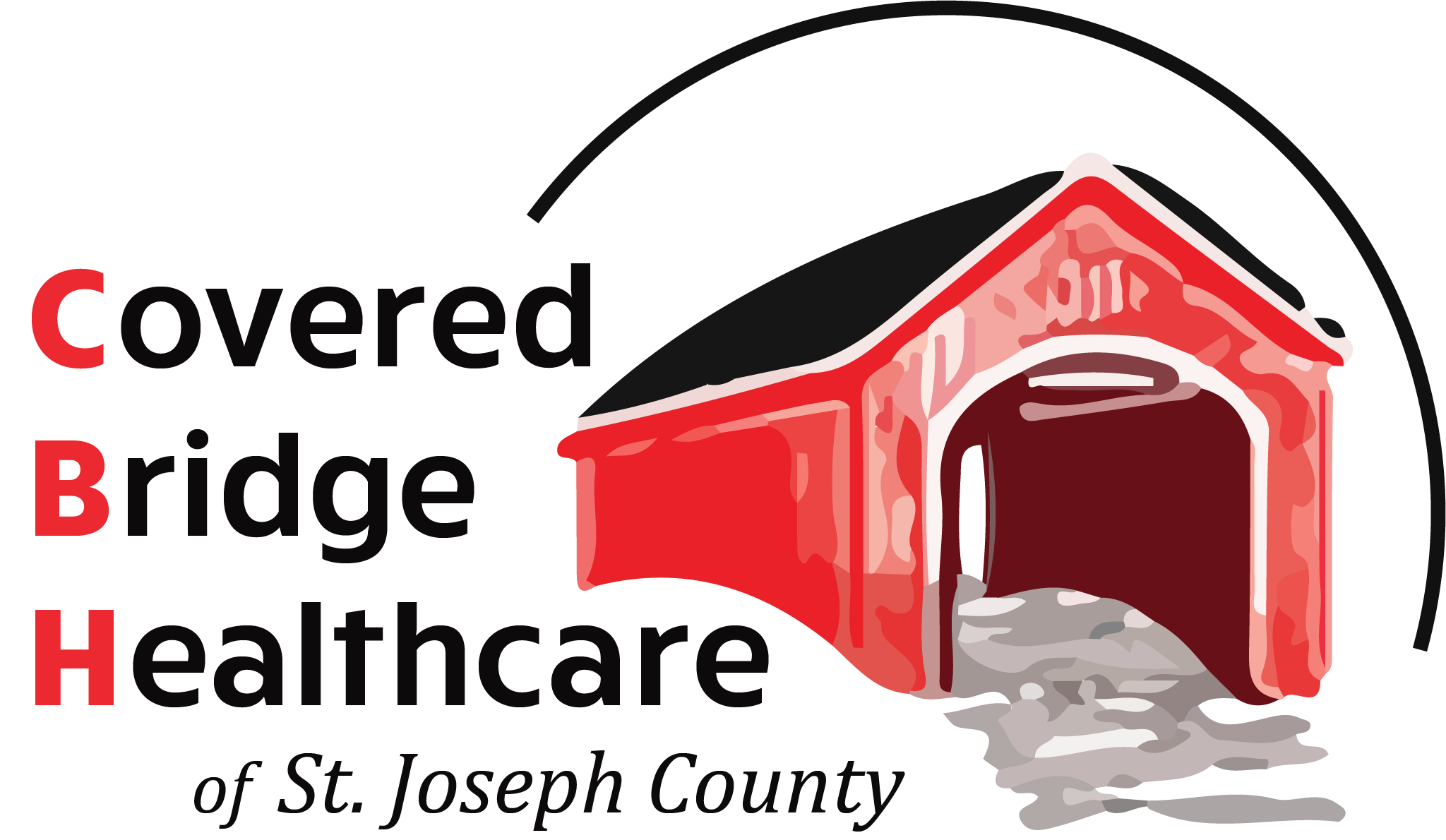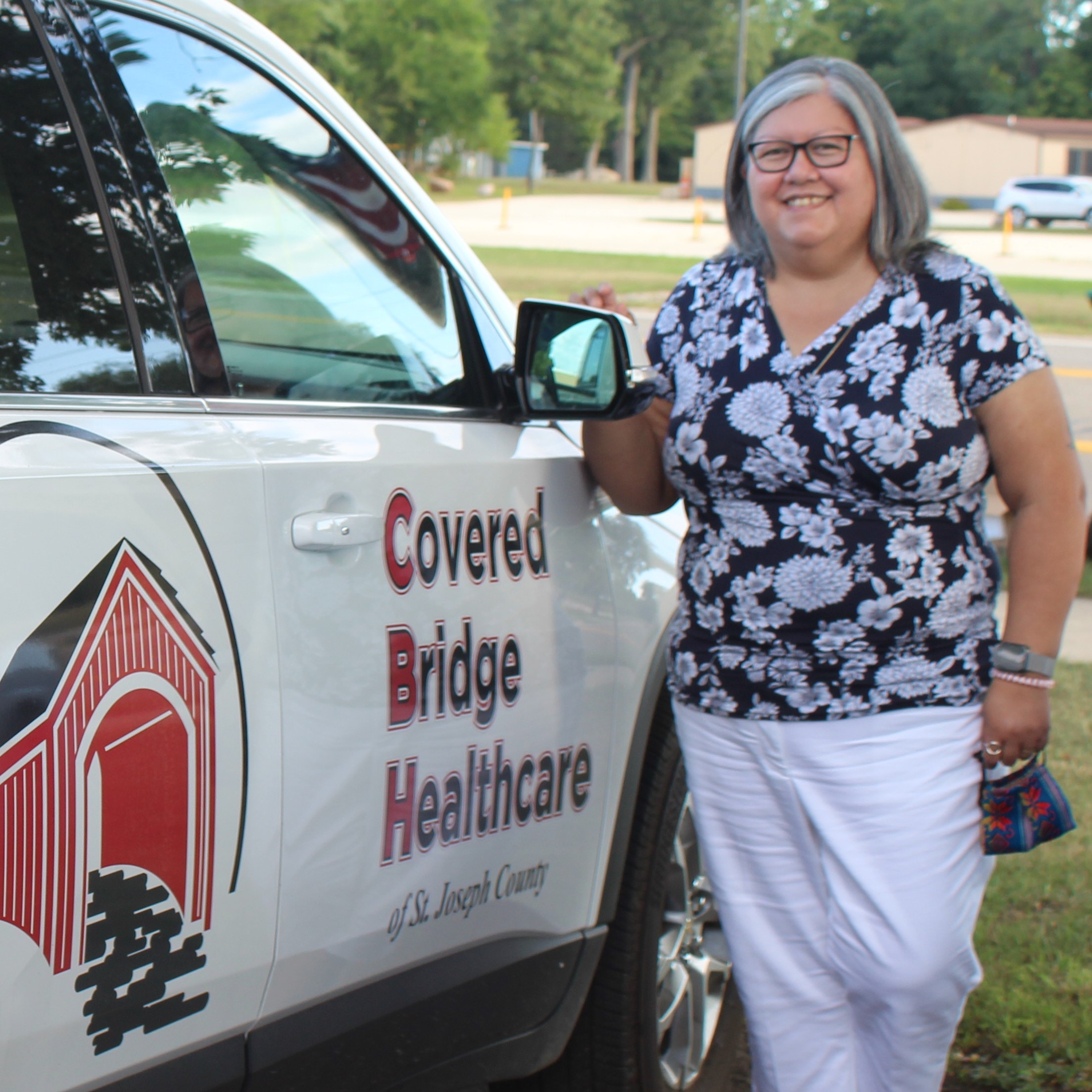For Leticia Rubio of Centreville, Gov. Gretchen Whitmer’s emergency order requiring COVID-19 testing for agricultural and food processing employees holds special significance.
The Certified Medical Assistant at Covered Bridge Healthcare has been in their shoes – her family came to the United States as migrant workers four decades ago – and her life has also been affected by the coronavirus.
“It’s not only important for me to help the migrants on a personal basis, but we lost my father-in-law on June 2 to COVID-19, so it’s a personal mission to help as many people as possible,” she said.
While they don’t know how the 75-year-old Sturgis resident initially contracted the virus, he was immunocompromised, so it hit hard and quick.
His relatives were not allowed to see him – they had to say goodbye through video chat. He was unconscious and on a ventilator.
“My father-in-law was a statistic,” she said.
Covered Bridge Healthcare has been leading the way in St. Joseph County responding to the emergency order. With funding from the state of Michigan, their team of six takes the Community Mobile Clinic into the fields, seeking to meet the estimated 800 St. Joseph County agricultural workers where they are.
“As a Federally Qualified Health Center, our community strategic plan is to provide a wide scope of health care services,” CEO Rick Shaffer said. “In addition to family practice, jail medical and Twin County Community Probation Center, Covered Bridge Healthcare is very proud to be a part of migrant health care for our seasonal community partners.”
 Rubio and two men on the team offer translation services along with medical expertise; others assist them with paperwork and test tube preparation. The post-testing period involves a large amount of data entry and lab processing – but so far everything is going well, Shaffer said.
Rubio and two men on the team offer translation services along with medical expertise; others assist them with paperwork and test tube preparation. The post-testing period involves a large amount of data entry and lab processing – but so far everything is going well, Shaffer said.
While at the first farm all tests were negative, testing at other farms has yielded a few positives. Covered Bridge Healthcare works with employers and the Branch-Hillsdale-St. Joseph Community Health Agency on how to quarantine workers who test positive and reach out to their contacts.
Covered Bridge Healthcare’s next testing focus will be on food processing plants, such as Bayer and DuPont.
The governor’s executive order, announced Aug. 3 with a deadline of Aug. 24, was recently upheld by the U.S. District Court for the Western District of Michigan after a lawsuit challenged it.
According to Michigan Department of Health and Human Services (MDHHS) Director Robert Gordon, “The department’s goal is to save lives during a pandemic that has killed more than 6,300 people in Michigan. At a time when farms, food processing plants and migrant worker camps face 21 outbreaks, the best way to save lives is to support and test these hard-working employees.”
The order requires migrant housing camp operators to provide COVID-19 testing as follows:
- One-time baseline testing of all residents ages 18 and over.
- Testing of all new residents with 48 hours of arrival, with separate housing for newly arriving residents for 14 days and a second test 10-14 days after arrival.
- Testing of any resident with symptoms or exposure.
It also requires employers of migrant or seasonal workers, meat, poultry and egg processing facilities and greenhouses with over 20 employees on-site at a time to provide COVID-19 testing as follows:
- One-time baseline testing of all workers.
- Testing of all new workers prior to any in-person work.
- Testing of any worker with symptoms or exposure.
In the future, Covered Bridge Healthcare would like to schedule more consistent opportunities to offer on-site healthcare to migrant workers.
“People have a lot of misconceptions about migrants,” Rubio said. “But the contractors we’ve worked with have really good support systems.”
Jobs migrant workers perform in the St. Joseph County area include detasseling corn, digging potatoes and picking gladiolus flowers.
Companies bring them under work visas, so the workers are here legally.
“They’re not bad people, just looking to make a living for their families,” Rubio said, noting that if they can send home $1,000, their family can survive for six months.
Rubio’s parents brought their children – five boys and six girls – from Mexico to Florida on Christmas Eve 1980 as migrant workers, picking tomatoes, cucumbers, zucchini and more in the fields.
Five-year-old Leticia would lug little buckets of blueberries, or help pick low-hanging oranges while adults used ladders to reach higher.
When there was nothing for the children to do, they would sit around or stay close to their parents.
She recalls working at a farm in Grand Junction, staying in cottages with a tiny stove, kitchen and refrigerator but no bathrooms. They had to walk to get to the showers; as most of the workers were men, her mother always kept a really close eye on the girls – especially as the facility was on the edge of the woods.
Men’s showers were on one side of the wall and women’s on the other; the men would poke holes through the wall, so the women had to cover them before showering. As the showers had no curtains, she often stepped in wearing a T-shirt and panties.
Conditions for migrants have vastly improved since then.
“I’ve seen some of the camps – they’re really nice,” Rubio said.
Shortly after Rubio’s high school graduation in 1993, the family moved to Michigan, where her older siblings were better able to care for their widowed mother.
Leticia started working at a gladiolus farm, but seeking a change from hard labor, took a position as a cashier at a Walmart jewelry counter. Three years later she was back to hard labor, working at a factory making seat covers for Jeeps.
A bright spot during that period, however, came when a friend of a friend introduced her to now-husband Tani, who currently works at Fresh Solution Farms as a department manager. A year later, they were married. The couple has 18- and 22-year-old sons who graduated from Mendon High School.
Moving on to desk jobs, Rubio worked at the WIC office and then for Dresser, Dresser, Haas and Caywood as a receptionist.
Then, “I decided I needed to go back to school because I wanted to work in the medical field permanently,” she said.
She earned her medical assistant certificate at Glen Oaks Community College in 2004, and now utilizes that knowledge – and her translation skills – in her job of three and a half years at Covered Bridge Healthcare.
“I love it,” she said. “We’re like a big family here.”






